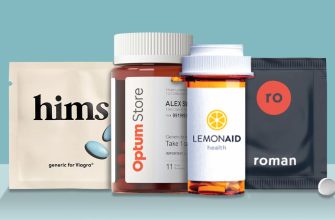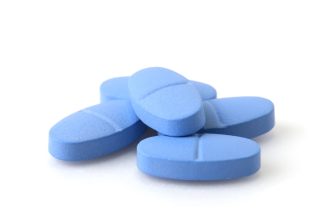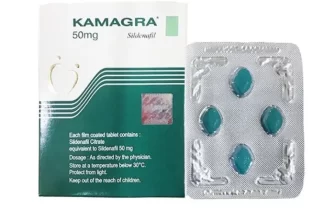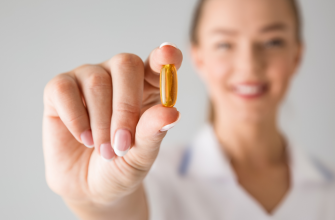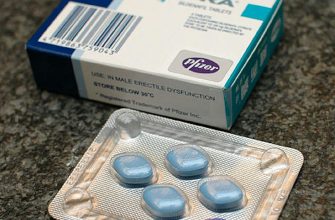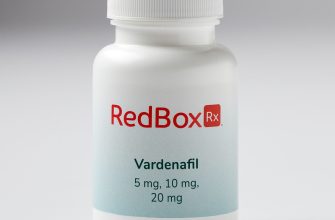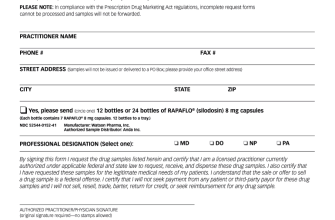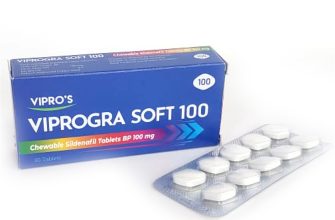If you’re looking to enhance your sexual performance, consider Sildenafil tablets at 100mg as a straightforward solution. This medication works by increasing blood flow to the penis, helping to achieve and sustain an erection during sexual activity. Many men find it effective in tackling erectile dysfunction, offering results that can significantly improve confidence and intimacy.
Most users take one tablet approximately 30 minutes to an hour before planned sexual activity. It’s essential to note that Sildenafil requires sexual stimulation to be effective; it won’t work just by taking the pill without any sexual engagement. The effects can last up to four hours, providing a window of opportunity to enjoy intimate moments without the pressure of timing.
Before starting Sildenafil, consult with a healthcare provider to discuss your medical history and any potential interactions with other medications. This step ensures safety and optimizes the benefits you will experience. Monitoring for side effects, such as headaches or flushing, can help you gauge your body’s response to the medication.
Choosing Sildenafil tablet 100mg can transform your experiences, fostering better communication and satisfaction in your relationships. By understanding its usage and effects, you’re setting the stage for an improved sexual health journey.
- Sildenafil Tablet 100mg: A Comprehensive Guide
- What is Sildenafil Tablet 100mg?
- How Does Sildenafil Work?
- Usage and Dosage Guidelines
- Indications and Uses of Sildenafil Tablet 100mg
- Management of Erectile Dysfunction
- Pulmonary Arterial Hypertension
- Dosage Recommendations for Sildenafil Tablet 100mg
- Potential Side Effects of Sildenafil Tablet 100mg
- Interactions with Other Medications and Substances
- Best Practices for Taking Sildenafil Tablet 100mg
Sildenafil Tablet 100mg: A Comprehensive Guide
Sildenafil 100mg is a widely prescribed medication for erectile dysfunction. It functions by enhancing blood flow to the penis, aiding in achieving and maintaining an erection during sexual stimulation. To maximize its benefits, take the tablet about 30 to 60 minutes before sexual activity. However, it is advisable to avoid heavy or high-fat meals before consumption, as they can delay the onset of the medication’s effects.
The typical recommended dose for most users is 50mg, but your healthcare provider may suggest adjustments based on individual response or tolerability. It is essential not to exceed the maximum dose of 100mg per day, as higher amounts do not improve efficacy and may increase the risk of side effects.
Common side effects can include headaches, facial flushing, nasal congestion, and upset stomach. Although these are generally mild and temporary, it’s important to consult a doctor if you experience more severe reactions such as vision changes or a prolonged erection lasting more than four hours, known as priapism.
Interactions with other medications can occur, especially those containing nitrates or certain blood pressure medications. Always inform your doctor about all the medicines you’re taking to prevent any risks. Alcohol can also affect how well sildenafil works, and it’s advisable to limit intake when using this treatment.
The storage conditions are straightforward: keep the tablets in a cool, dry place, away from direct sunlight. If you notice any unusual changes in the product, ensure to discard it properly. Regular follow-ups with your healthcare provider can help monitor the effectiveness of the treatment and make any necessary adjustments.
Sildenafil has transformed the way erectile dysfunction is treated, allowing many to regain confidence in their sexual health. By adhering to medical advice and understanding the usage guidelines, you can make the most of this effective treatment option.
What is Sildenafil Tablet 100mg?
Sildenafil Tablet 100mg is a medication primarily used to treat erectile dysfunction (ED) in men. It serves by increasing blood flow to the penis, which results in an erection when sexually stimulated. This specific dosage provides a balance between effectiveness and potential side effects, making it a popular choice among individuals seeking relief from ED symptoms.
How Does Sildenafil Work?
Sildenafil operates as a phosphodiesterase type 5 (PDE5) inhibitor. It blocks the action of the enzyme PDE5, which leads to the relaxation of blood vessels in the penis and allows for improved blood flow. Sexual arousal is necessary for sildenafil to be effective; it does not produce an erection without sexual stimulation.
Usage and Dosage Guidelines
The recommended starting dose for Sildenafil is typically 50mg, but some individuals may be prescribed 100mg depending on their response to treatment. Take the tablet about 30 minutes to one hour before sexual activity, and avoid consuming high-fat meals as they may delay the medication’s effects. Always consult a healthcare provider for personalized dosage and usage recommendations.
Indications and Uses of Sildenafil Tablet 100mg
Sildenafil 100mg is primarily indicated for the treatment of erectile dysfunction (ED) in men. It helps enhance blood flow to the penis, facilitating the ability to achieve and maintain an erection in response to sexual stimulation.
Management of Erectile Dysfunction
For men experiencing difficulty achieving or sustaining an erection, Sildenafil acts by relaxing the blood vessels in the penis. This relaxation allows for increased blood flow, resulting in improved erectile function. It is most effective when taken approximately 30 to 60 minutes prior to sexual activity.
Pulmonary Arterial Hypertension
Sildenafil also serves as a treatment for pulmonary arterial hypertension (PAH). It works by relaxing blood vessels in the lungs, lowering blood pressure in the pulmonary arteries. Patients may notice improved exercise capacity and overall quality of life as a result of this treatment.
Consult with a healthcare provider to determine if Sildenafil 100mg is appropriate for your condition. Adjustments in dosage may be necessary based on individual response and tolerance. Always follow prescribed instructions for optimal results.
Dosage Recommendations for Sildenafil Tablet 100mg
Take one 100 mg tablet of Sildenafil about 30 to 60 minutes before engaging in sexual activity. This timing allows for the medication to reach optimal effectiveness. Swallow the tablet whole with water; don’t crush or chew it. Avoid consuming high-fat meals close to when you take the tablet, as this may delay its absorption.
For individuals new to sildenafil, starting with a lower dose, such as 50 mg, may be recommended to assess tolerance and effectiveness. If the lower dose proves insufficient, healthcare providers might suggest increasing to 100 mg. Do not exceed the maximum recommended dose of 100 mg within a 24-hour period.
Monitor for side effects, such as headaches or flushing. If any severe side effects occur, including vision changes or an erection lasting longer than four hours, seek medical attention immediately. Regular follow-ups with your healthcare provider can help tailor the dosage to fit your needs while ensuring safety.
Potential Side Effects of Sildenafil Tablet 100mg
Sildenafil 100mg can cause side effects, some of which require attention. Common reactions include headaches, flushing, and dyspepsia. These symptoms typically resolve without medical intervention but can be bothersome for some users.
Visual disturbances, such as blurred vision or changes in color perception, may occur. If these symptoms become pronounced or distressing, consulting a healthcare professional is advisable.
Some users report nasal congestion or a stuffy nose. This side effect can be mild but may lead to discomfort. Maintaining hydration and using saline nasal sprays can alleviate this issue.
Serious side effects are rare but possible. Chest pain, sudden loss of vision, or an erection lasting longer than four hours (priapism) requires immediate medical attention. Seek help right away if you experience these symptoms.
Individuals with pre-existing conditions, particularly heart problems, should discuss potential risks with a healthcare provider before using sildenafil. This ensures a tailored approach to their treatment and a better understanding of how to manage side effects if they arise.
Always take sildenafil tablets as directed by your physician. Monitor your body’s response closely, and do not hesitate to reach out to your healthcare provider for guidance on any unusual or concerning symptoms.
Interactions with Other Medications and Substances
Patients taking Sildenafil 100mg should be aware of interactions that may affect treatment outcomes. Certain medications can influence the effectiveness and safety of Sildenafil.
Avoid combining Sildenafil with nitrates, commonly prescribed for chest pain. This combination can lead to a severe drop in blood pressure. Always inform your healthcare provider if you take any nitrate medications, including nitroglycerin.
Alpha-blockers, used for high blood pressure or prostate issues, may also interact with Sildenafil. These can cause low blood pressure, especially after the first dose of the alpha-blocker. Your doctor may adjust your treatment regimen accordingly.
Consult with your healthcare provider about the following medication types:
| Medication Type | Interaction Result |
|---|---|
| Nitrates | Risk of severe hypotension |
| Alpha-blockers | Possible low blood pressure |
| Ritonavir (HIV treatment) | Increased Sildenafil levels |
| Antifungal medications (e.g., ketoconazole) | Increased risk of side effects |
| Anti-seizure medications | Reduced efficacy of Sildenafil |
Alcohol consumption can also exacerbate the blood pressure-lowering effects of Sildenafil. Limit alcohol intake to ensure safe use and optimal performance of the medication.
Inform your doctor about all medications, supplements, and herbal products you’re taking. This practice helps prevent adverse interactions and allows for a tailored treatment plan.
Best Practices for Taking Sildenafil Tablet 100mg
Take Sildenafil 100mg approximately 30 to 60 minutes before anticipated sexual activity. This timing allows the medication to reach optimal effectiveness.
- Swallow the tablet whole with a glass of water. Avoid crushing or chewing the tablet, as this may affect how the medication works.
- Do not exceed the recommended dosage of one tablet per day. Higher dosages can lead to increased risk of side effects.
- Limit alcohol consumption. Drinking excessive amounts can interfere with the effectiveness of Sildenafil.
- Maintain a balanced diet. High-fat meals may delay the onset of the medication’s effects.
Monitor for side effects such as headaches, flushing, or dizziness. If these symptoms persist or worsen, consult a healthcare professional.
- Stay hydrated by drinking water throughout the day. This helps reduce the likelihood of experiencing side effects.
- Inform your doctor about all medications you are taking to avoid harmful interactions.
- If you miss a dose, do not double up. Simply take your usual dose when it’s time for the next one.
Consider discussing your overall health with a healthcare provider, especially if you have pre-existing conditions such as heart issues or low blood pressure.


